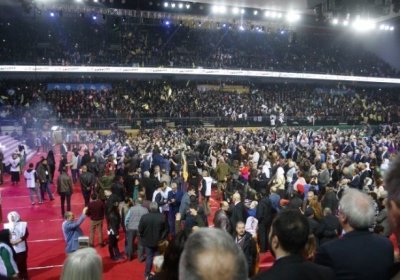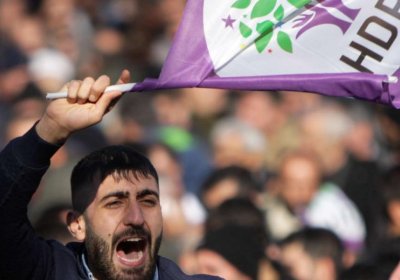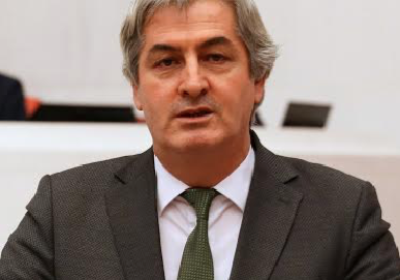The Erdoğan regime has issued arrest warrants for 82 members of the popular left-wing People’s Democratic Party in Turkey. Alex Bainbridge argues the Australian government must take a stand for democracy and civil rights.
Recep Tayyip Erdoğan
The March 31 Turkish local election results showed democracy is alive, but if the opposition wants to win there needs to be unity of the Kurdish and Turkish left, writes Arash Azizi.
Why is Turkish President Recep Tayyip Erdoğan broadcasting the video of the Christchurch mosque attack? The reason lies within the deep contradictions shattering Turkish politics and growing popular opposition.
The Turkish state’s hostility towards the Kurdish people continues, having now escalated its threats against Rojava.
Russian revolutionary Vladimir Lenin was said to have remarked that there are decades in which nothing happens, and weeks in which decades happen. Muhsin Yorulmaz writes that, in Turkey, there is no escaping this particular truism.
Because of the rapid rate of betrayals, shifting alliances and crises, it becomes difficult to summarise what the Turkish government or state are “thinking” in a given week, even for those of us who speak Turkish.
By now, it is widely known that Turkish President Recep Tayyip Erdoğan “won the election” in his country. But Muhsin Yorulmaz writes that the authoritarian leader’s support is waning.
Turkey’s authoritarian President Recep Tayyip Erdogan won 53% of the vote in the June 24 presidential election.
This extends his rule until at least 2023 — but now with the sweeping executive powers narrowly endorsed in a referendum last year.
The world is looking the other way as Turkey plans to build on its successful occupation of Afrîn to expand its power with a new round of ethnic cleansing, John Tully writes.
Turkish President Recep Tayyip Erdoğan said in a May 8 speech: “If one day our nation says tamam (enough), only then will we step aside.” In response, millions of people posted tweets featuring the word “tamam”.
There were more than 1.8 million posts including the word “tamam”, while different versions/spellings of the word were also popular. The hashtag #devam (“continue”) started by pro-Erdoğan groups immediately after lagged behind at 300,000 posts.
[Abridged from ANF News.]
Turkish President Recep Tayyip Erdogan's decision to call an early general election on June 24 — a year and a half before it was due — is a sign of weakness and desperation, according to opposition Peoples’ Democratic Party (HDP) MP Lezgin Botan.
Turkey has condemned Israel’s slaughter of unarmed Palestinians, but the Turkish regime commits the same atrocities against Kurdish people.
The Afrin canton in Northern Syria is under sustained assault from invading Turkish forces and allied Islamist gangs.
The Turkish invasion, accompanied by reports of massacres and use of chemical weapons, aims to destroy the progressive, democratic Kurdish-led revolution in Syria’s north, which places women’s liberation at its centre.
- Previous page
- Page 2
- Next page








